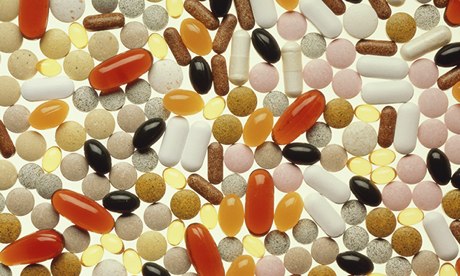
All under-fives may be offered free vitamins on the NHS in an effort to curb the rising tide of illness, such as rickets, linked to them getting too little vitamin D.
Dame Sally Davies, the government's chief medical officer, wants ministers to consider extending the offer from low-income families to all children under the age of five.
She has asked the National Institute of Health and Care Excellence (NICE) to investigate whether giving all children in that age group vitamins A, C and D, in the form of drops or tablets, would be cost effective.
Davies said the return of rickets, and the implication of vitamin D in other ill-health, meant that offering every family with under-fives free vitamins was necessary.
She pointed to a scheme in Birmingham in which universal access to vitamins is credited with halving the number of cases of rickets in the city.
As many as 40% of young children do not get enough vitamin D, said Davies, as she launched her annual report into children's health and the state of NHS physical and mental health services for children.
The number of under-18s who have been admitted to hospital in England for rickets soared from 190 in 2002-03 to 748 in 2011-12, NHS figures show.
Hilary Cass, president of the Royal College of Paediatrics and Child Health, welcomed Davies' initiative but cautioned that take-up of free vitamins under the Healthy Start programme had been less than 10%, according to a study in 13 NHS trust areas published in May. It offers the vitamins to people on low incomes and to pregnant women.
However, she added: "Widespread supplementation is already happening in some countries and should certainly be looked at in the UK.
"We are seeing a growing number of cases of vitamin-D related illnesses amongst children and young people, and supplementation is a key way of getting the required amount.
"Of course we need to see how cost effective it would be to offer these vitamins free to everyone; but quite often the benefits outweigh the costs."
Seizures and developmental delay in babies are also associated with a lack of vitamin D, which is obtained naturally from sun on the skin and certain foods, such as eggs and oily fish.
Claire Lemer, editor of the report, said: "There is no single reason why parents do not give their children vitamins.
"It could be due to a range of reasons – from not being aware of their benefits to them not being easily accessible.
"But we do know from studies that making vitamins available to all can lead to a boost in families taking up the offer."

